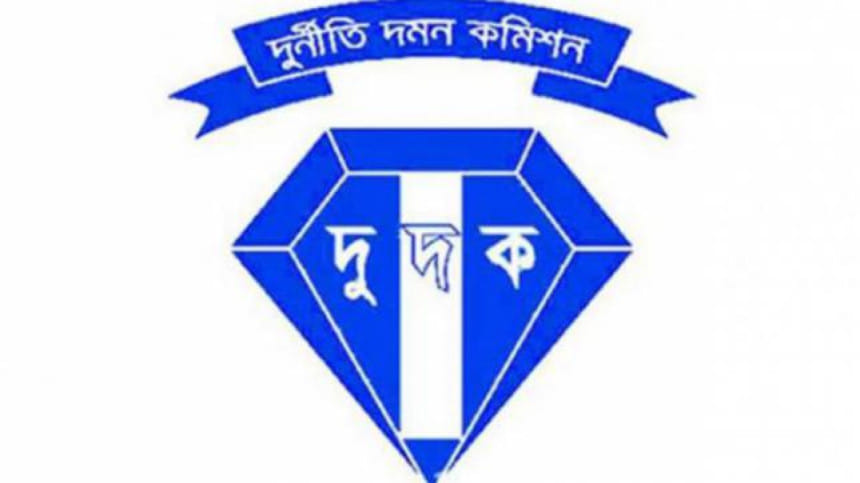Not ministry, PWD to blame

The Ministry of Housing and Public Works is not “liable” for anomalies which surfaced at the Rooppur Nuclear Power Plant Project as it was a concern of the Public Works Department (PWD), the Anti-Corruption Commission said yesterday.
“The ministry’s approval is needed for the implementation of big projects worth over Tk 30 crore. In many cases, to avert ministry’s approval…projects are divided into small packages for tender,” said ACC in its report prepared to identify 15 sources of corruption at the PWD.
To explain, the Anti-Corruption Commission (ACC) brought up the much-talked about financial anomalies at Rooppur Nuclear Power Plant project, where a pillow was bought for Tk 5,957, and the cost of carrying it to a flat was Tk 760.
The ACC said the “PWD prepared estimation for the supply of furniture for its six under-construction buildings and invited tender for six packages” for the Rooppur plant project. “As the estimated procurement price of each package was below Tk 30 crore, PWD itself approved and appointed a contractor.”
“In this case, the ministry had no involvement in preparing estimation, giving approval or appointing contractors,” reads the report.
Yesterday, ACC’s Commissioner M Mozammel Haque Khan handed over the report to SM Rezaul Karim, Minister of the Ministry of Housing and Public Works at the latter’s office.
Earlier, two government probe committees found anomalies involving Tk 36.4 crore in purchasing furniture and other household items for officials of Rooppur Nuclear Power Plant in Pabna.
The bodies, formed by the housing and public works ministry, have also recommended departmental and legal action over the corruption against 50 officials, including Masudul Alam, former project director of Green City Housing Project under the power plant.
Identifying 15 sources of corruption at PWD, an ACC institutional team prepared the report with 20 recommendations.
ACC’s report is based on interviews of PWD officers, annual reports, audit reports, media reports and its own findings.
Besides, for big projects, according to the report, crores of taka are allocated to PWD for repair and maintenance work.
“There are allegations that these are divided into small lots to award work orders to preferred construction firms owned either by PWD officers or their relatives,” read the report.
The report said, “In a bid to give the work order to a preferred construction firm, PWD in many cases makes other contractors non-responsive for nominal reasons.
“Though the bid is offered through e-GP, preferred contractors are informed about the rate in advance and only those conditions that the preferred contractors possesses are added as requirement to disqualify other bidders,” it explained.
The ACC said though PWD carried out tender processes through e-GP, in some cases pressure from influential contractors or misappropriation of project funds by officials and engineers derails the works.
There are allegations against PWD of using substandard bricks, cement, iron rods and sand at different under development projects.
ACC said that there were allegations against some PWD officials that they conspired with contractors to unnecessarily increase project costs and embezzle money.
Often, PWD officials concerned do not pay bills to contractors unless they are given bribes, reads the report.
The volume of government’s building construction, maintenance and development has increased several times, but PWD’s manpower has not increased in line with those, resulting in slow pace of projects.
The ACC recommended forming a Counter Technical Unit at Head of Procuring Entity (HOPE) office to prevent corruption at e-GP process, ensure the project’s utility at the selection stage and monitor illogical time extensions.
It also suggested preparing a list of PWD officials who are involved in the construction business directly and indirectly, and give exemplary punishment to the contractors and engineers responsible for negligence or rule violations.
While handing over the report, ACC’s Commissioner Mozammel said, “From estimation to implementation of a project, close monitoring is needed as there is extensive scope of corruption in these stages. Even there is collusion between officers and contractors at e-GP process.
“It is appropriate not to engage controversial officials in big projects,” said Mozammel.
Meanwhile, Housing and Public Works Minister SM Rezaul Karim welcomed the ACC’s report. “The report will be a guide to ensure transparency and accountability,” he said.
“The prime minister has taken a zero tolerance policy. As a member of her cabinet, I won’t tolerate minimum corruption,” he added.

 For all latest news, follow The Daily Star's Google News channel.
For all latest news, follow The Daily Star's Google News channel. 




Comments